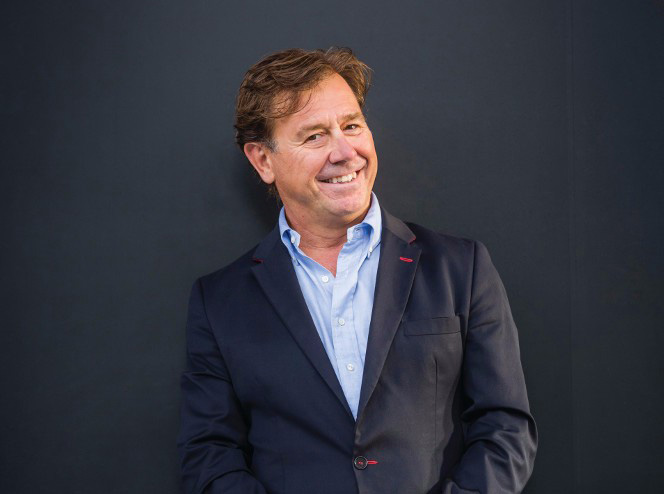Baker Hughes recognized its need for employees who understood the company on a macro level, not just their team or region. Here’s how they taught their employees to change how they think about their organization.
Imagine for a moment that you work for Baker Hughes in one of the firm’s many global offices. Think about how well you understand your own office and the company’s operations in your region. But what about other regional offices? Or the business as a whole?
Baker Hughes (BH) is the combination of many companies that have developed and introduced technology and services for the oil and gas industry. Its combined history dates back to the early 1900s. In 2010, BH undertook a major reorganization to integrate individual divisions into an operating company working on enterprise-wide solutions. A new matrix structure was to be underpinned by a single global culture and way of working. For this, the company leaders had to think and act differently. Top-down leadership in “my” region or function is pretty straightforward. Working out how to collaborate with colleagues to achieve sales of global products and services takes more self-insight, collaboration and influence.
A new leadership mindset
In 2013, BH launched a series of leadership development initiatives as part of its leadership development framework, starting with the top 150 leaders and cascading throughout the organization. For the top levels, it partnered with world-class educators like Duke Corporate Education (CE); further down in the framework, programmes were taught by BH trainers. Thousands of employees have been engaged.
Some key aspects of the education were to create leaders who could think more holistically and make decisions based on the needs of the entire company; drive game changing strategies in collaboration; share ideas, knowledge and insight across the business; thrive on ambiguity; and take calculated risks and make continuous improvements based on experience.
To be asked to think and act so differently can feel challenging to leaders who are, in essence, being asked to learn a new way of operating. And there was certainly scepticism about the need for executive education to help them, as BH director of leadership development Annette Law explains.
“One executive said to me ‘I did not want to come to this class – what can you teach me?’ – but they were turned around after the first week of the first module,” she reveals. “Why? Because we challenged them to think differently. It was less about teaching new content than validating what they already knew and helping them to apply it in a different way, to deal with today’s problems. And we also encouraged them to apply their learning to the challenges faced one level up – we’ve seen very positive results from the participants who went through the programmes.”
Director of talent management Francesco Turchetti says the project required employees to develop – and embrace – a whole new mindset. “We challenged our leaders to undertake a personal transformation,” he says. “We asked them to learn to take ownership and hold accountability for the whole company, not just their part of it. Quarterly interventions played out across 18 months strengthened their interdependence and their personal bonds. They feel they can now reach out quickly into their global network for support.”
BH adopted world-class executive education techniques such as experiential exercises and deep conversations about strategy and purpose, consistently led by the chief executive and the 12-strong executive committee (a Baker’s dozen!). Do they believe it worked?
Success story
There is concrete data demonstrating success. Strategic projects led by executive committee members and other senior leaders have achieved real business results. Employees have been surveyed to make sure the strategy has been cascaded right down the business so that everyone can align behind it. And participants at each level coach and mentor participants enrolled in programmes conducted at the next level down.
There’s more. At the start of the leadership development initiative, nobody could have predicted late-2014’s dramatic downturn in the oil and gas business. “Everyone talks about VUCA – volatility, uncertainty, complexity and ambiguity,” says Law. “With the downturn in our industry, we are in the VUCA. There is ambiguity and uncertainty everywhere. Our people still need to lead even as we face these difficult times. The call to great leaders is here and now – and they are standing up and answering that call.”
How do the leaders feel?
Lynn Frostman, senior director of chemicals, innovation and technology at Baker Hughes, attended the Global Leadership Program run by Duke CE, led by managing director Craig Clawson. Did it make a difference?
“It is the most impactful training process I have been through,” she says. “It was really well done and well-tailored to our issues and challenges, so that it felt relevant. For me, there has been a personal impact – I have grown in confidence. We have introduced a new corporate value at Baker Hughes – courage.
“One thing I got was confidence in my ability to lead through good and bad times and to have more impactful conversations. I confronted a senior colleague about his behaviour, which could have a counterproductive effect on colleagues at times – something I would never have done previously. I planned it ahead of time and, to his credit, he listened. In meetings now, I can see him catching his breath and rephrasing how he says something. I have courage – I have found my voice.”
An adapted version of this article appeared on the Dialogue Review website.



